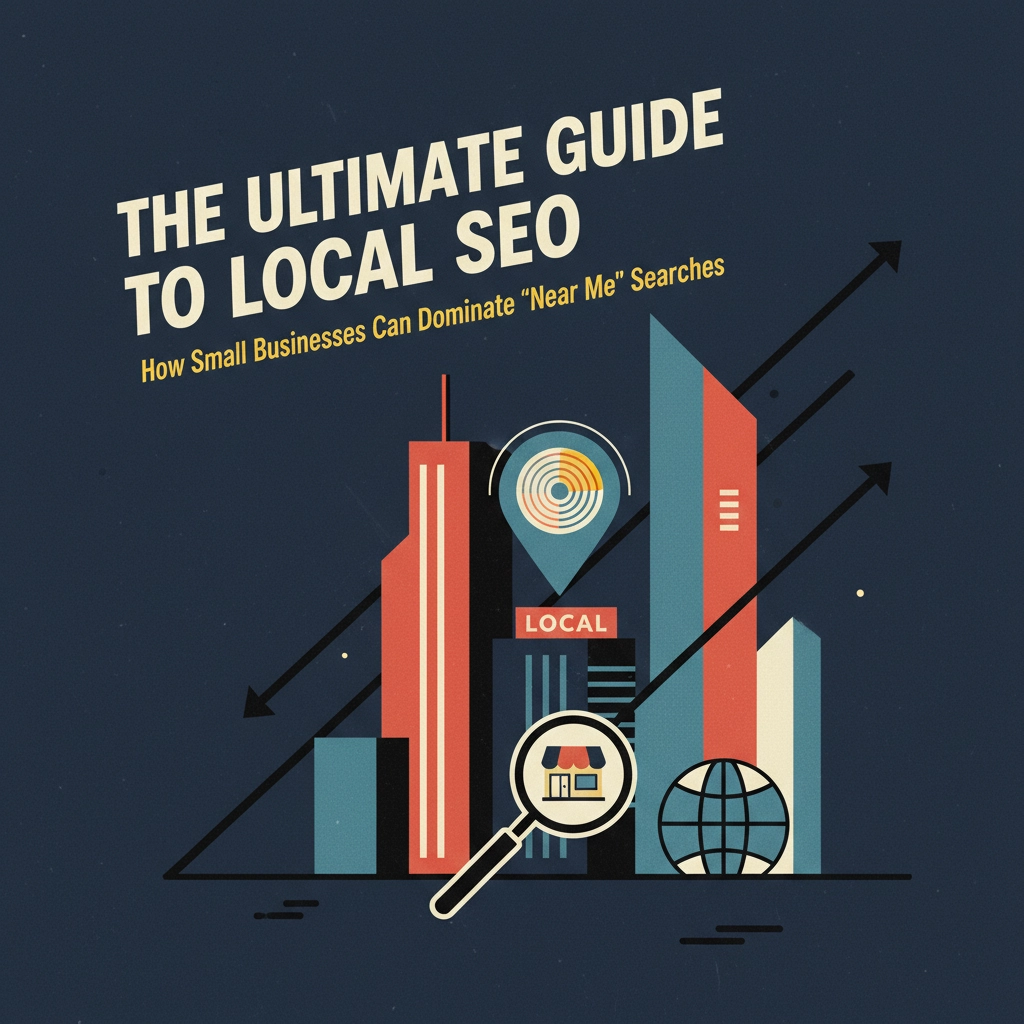The Ultimate Guide to Local SEO: How Small Businesses Can Dominate 'Near Me' Searches

When someone searches for "pizza near me" or "plumber in [your city]," they're not browsing: they're ready to buy. Local SEO is your secret weapon for capturing these high-intent customers who are actively looking for businesses like yours in their immediate area.
Here's the reality: 95% of customers read reviews before making a purchase, and 46% of all Google searches are looking for local information. If your small business isn't showing up in these "near me" searches, you're missing out on customers who are ready to spend money with you today.
The good news? You don't need a massive budget to compete. With the right local SEO strategy, your small business can outrank bigger competitors and dominate your local market.
Master Your Google Business Profile First
Your Google Business Profile is the foundation of everything. This free tool puts your business directly on Google Maps and in local search results: it's non-negotiable for local success.
Start by claiming your profile immediately if you haven't already. Fill out every single field completely. Your business name should be exactly what's on your storefront: no keyword stuffing like "Joe's Pizza - Best Pizza Downtown." Google will penalize you for that.
Keep your profile active and updated. Post weekly updates about special offers, new products, or behind-the-scenes content. Upload high-quality photos of your work, your team, and your location. Google rewards businesses that show they're alive and thriving.

Here's what you need to get right:
- Complete business information (hours, phone, website, services)
- Professional photos of your business and products
- Regular posts and updates
- Your primary business category (choose the most specific one that fits)
- Service areas if you travel to customers
Your Google Business Profile is often the first impression potential customers get of your business. Make it count.
Reviews Are Your Local SEO Superpower
Reviews directly impact your local rankings. The businesses with more positive reviews consistently outrank those with fewer reviews, even if the competitor has a better website.
Don't just hope reviews happen: create a system to earn them. Share QR codes that link directly to your Google review page. Include review requests in your follow-up emails. Ask satisfied customers in person.
Respond to every review, positive and negative. When you respond to negative reviews professionally and offer solutions, you show potential customers that you care about service quality. This actually builds trust and can turn a negative into a positive.
Target the Right Local Keywords
Stop competing for impossible keywords. Instead of trying to rank for "web design," focus on "web design [your city]" or "website designer near me."
Your local keywords should include:
- Your service + your city
- Your service + "near me"
- Your service + specific neighborhoods you serve
- Industry terms locals actually use
Create dedicated pages for each service and location you serve. If you're a plumber serving three cities, you need three separate landing pages optimized for each location. This gives you multiple opportunities to show up in local searches.

Research what your local competitors are ranking for, but don't try to directly compete on their strongest keywords if you're just starting. Find the gaps: the keywords they're missing or not optimizing well for.
Build Local Citations That Matter
Citations are mentions of your business across the web. Search engines use these to verify your business exists and to understand your local relevance.
Your NAP (Name, Address, Phone) must be identical everywhere. One listing says "Street" and another says "St."? That inconsistency hurts your rankings. Audit your existing citations and fix any discrepancies immediately.
Focus on quality over quantity. Getting listed on relevant local directories, industry-specific sites, and your local chamber of commerce website carries more weight than being on random, unrelated directories.
Start with these high-impact citation sources:
- Google Business Profile (obviously)
- Yelp
- Yellow Pages
- Local newspaper websites
- Industry-specific directories
- Chamber of Commerce
Create Content That Shows Local Expertise
Your website needs to prove you're a local authority. Create content that demonstrates your knowledge of the local market and community.
Write about local events your business sponsors or participates in. Create guides specific to your area: like "Best Wedding Venues in [Your City]" if you're a photographer, or "Home Maintenance Tips for [Your Climate]" if you're a contractor.
This local content serves two purposes: it helps with SEO, and it builds trust with potential customers who want to work with someone who understands their specific area and needs.

Blog regularly about local topics related to your business. This keeps your website fresh and gives search engines new content to index. It also positions you as the local expert in your field.
Get Technical SEO Right for Local
Your website must load fast on mobile devices. Most local searches happen on smartphones, and Google prioritizes mobile-friendly sites in local results.
Add schema markup to help search engines understand your business details. This structured data can create rich snippets that make your listings more attractive in search results.
Make sure your contact information is prominent on every page. Include your phone number, address, and hours clearly. Many local searchers want to call immediately or visit your location.
Track What Actually Matters
Monitor metrics that connect to real business results:
- Local keyword rankings for your target terms
- Google Business Profile views and actions (calls, directions, website clicks)
- Website traffic from local searches
- Conversion rates from local visitors
Set up Google Analytics to track local traffic sources. Use Google Search Console to see which local keywords are bringing you traffic and which pages are performing best.

Stay Consistent for Long-Term Success
Local SEO isn't a one-time project: it's an ongoing process. Set aside time weekly to update your Google Business Profile, respond to reviews, and create new local content.
The small businesses that dominate local search do so because they consistently maintain their online presence while their competitors set things up once and forget about them.
Your competitors are probably neglecting their local SEO right now. This is your opportunity to take the lead and capture more local customers.
Ready to Dominate Local Search?
Local SEO can feel overwhelming, but it doesn't have to be. The key is starting with the fundamentals and building from there.
Every day you wait is another day your competitors could be capturing customers who should be finding your business instead. Your local market is waiting for a business like yours to step up and claim the top spots in local search results.
At Delane Media, we help small businesses implement these exact local SEO strategies to dominate their local markets. We handle the technical details so you can focus on what you do best: running your business.
Ready to get started? Let's build a local SEO strategy that puts your business at the top of "near me" searches and drives real customers through your door.
